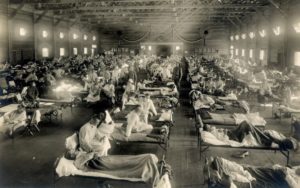
Stephen Pastis’ Pearls Before Swine captured it well.
Stay-at-home orders and social distancing have disrupted our lives. Many people have been lost without being able to meet with other people, socialize at their favorite haunts and restaurants, go to meetings and party with friends. They became lost souls, yearning to resume their old lives. However, some hoped to make it a time of achieving unfulfilled goals. While the Internet is filled with jokes like 70% of the blondes disappearing during the shut down and mosquitoes using sterilizing swabs before biting, there are also ones about failing to do anything productive while staying at home. After all, it is much easier and far more fun to binge watch old episodes of Breaking Bad or Buffy, the Vampire Slayer with a comforting bottle of Zinfandel Rosé than to do ten miles on the treadmill and write the “Great American Novel.”

Grim Reaper and Plague Doctor
After the binge-watching episodes and the wine ran out, perhaps you actually did start that novel you always wanted to write. Or you found time to finish one you started previously. But, if you are a writer either starting or finishing your novel, there is one big problem: the pandemic. While if you are writing a historical novel, that does not have any effect, if you are writing something current, the question is how do you handle it? There are some books that make a plague the central event, notably Pushkin’s A Feast in Time of Plague and Camus’ The Plague, but they are rare and written about fictional ones. Defoe’s A Journal in the Year of Plague is fiction posing as narrative about a real event, but was written almost sixty years after London’s plague of 1665, when the long-term effects were known. However, real pandemics, like the Black Death and the Spanish Influenza, aren’t the central event in any major fictional works. In fact, the Spanish Influenza, probably the closest occurrence to the COVID-19 pandemic and, so far, much more deadly, was largely ignored by all notable writers of the era.

No fancy ICU for the Spanish Flu
During its 15-month reign of terror, best estimates say the Spanish Flu infected almost one third of the world’s population (500 million) and killed anywhere from as low as 17 million to as high as 100 million, with 50 million as the generally accepted number (record keeping was not that great then). Places like churches and theaters were closed. Many people wore masks. But no vaccine was ever developed. Yet after three deadly waves of the virus, it seemed to disappear. Why? Perhaps it mutated into a less deadly strain. Perhaps so many had been affected that the human race developed a herd immunity. That is not an area of expertise for me. Yet, it was almost forgotten until the coronavirus hit us. Why? You don’t really read much about it in any works of people like Hemingway and Fitzgerald who lived through it. Perhaps because the flu passed without changing the long term lifestyle. After it passed, people shook hands, hugged and met in large groups. Travel was unrestricted. So writers could simply ignore it, pretend that it never happened. The Great War permeated writings after it happened, but the Spanish Influenza did not, even though more probably died from it. War is dramatic, with exciting battles and heroic soldiers making gallant charges, but pandemics are not. It’s difficult to make a slow, agonizing death by the flu sound interesting.

Working cover for Greek Week
So what do you do if you are finishing a book during the pandemic? If you make it a part of it, how do you describe how it ends, assuming it does, and the post-pandemic world? Odds are, you will be wrong in some way and look like a fool in a year or two. But if you ignore it, won’t that seem out of touch with reality? Such was my quandary after working on my latest book, a Morg Mahoney mystery entitled Greek Week. COVID-19 became a pandemic just as I was finishing it. It takes place entirely on a cruise ship, none of which are currently sailing and who knows what changes will be made when they start up again. Since it is set in present day, do I scurry to try to inject the pandemic into the plot without destroying it? Practically, that would not be possible. So do I do a complete rewrite to have the pandemic an integral part of the plot? That would not only necessitate a rewrite of the whole book, but would require changing the basic story line as well. In other words, it would not be the tale I wanted to tell. I couldn’t move it ahead in time since I am no seer who knows how this pandemic story will end. So I chose option 3: ignore the pandemic. In my soon-to-be-published murder mystery, Greek Week, the pandemic does not exist.

COVID-19, which will NOT feature in my book
Since I write fiction as a story teller, a raconteur who wants to entertain, this latest tale pretends there is no pandemic. I hope my readers will enjoy an escape from the reality of COVID-19 instead of bemoaning the omission of it from the book. My next book, possibly entitled Killer Kilt, will have the after-effects of the pandemic included, if we know them by then, but will not revolve around it. I will let that honor go to others. Since we now have a flood of new books out daily, I am sure there will be many. Those in the medical field are far more qualified than I to do so and, quite frankly, it is not my style of writing. I prefer to stick to mysteries now, ones that give all the clues for solving them, albeit not obviously. So stay tuned for a new mystery that does not revolve around COVID-19, but does revolve around things about which I have some knowledge. In this case, kilts. So, what does a Scotsman have under his kilt? Everything God gave him down there.

Hi Ron, thank you for the article, very informative. Might even use some it as a reference in my book and before I do I will let you know and get your permission first.
I have three of the books in my series done however I am now having fun fattening them up. Always looking for good feedback.
I hope you are well.